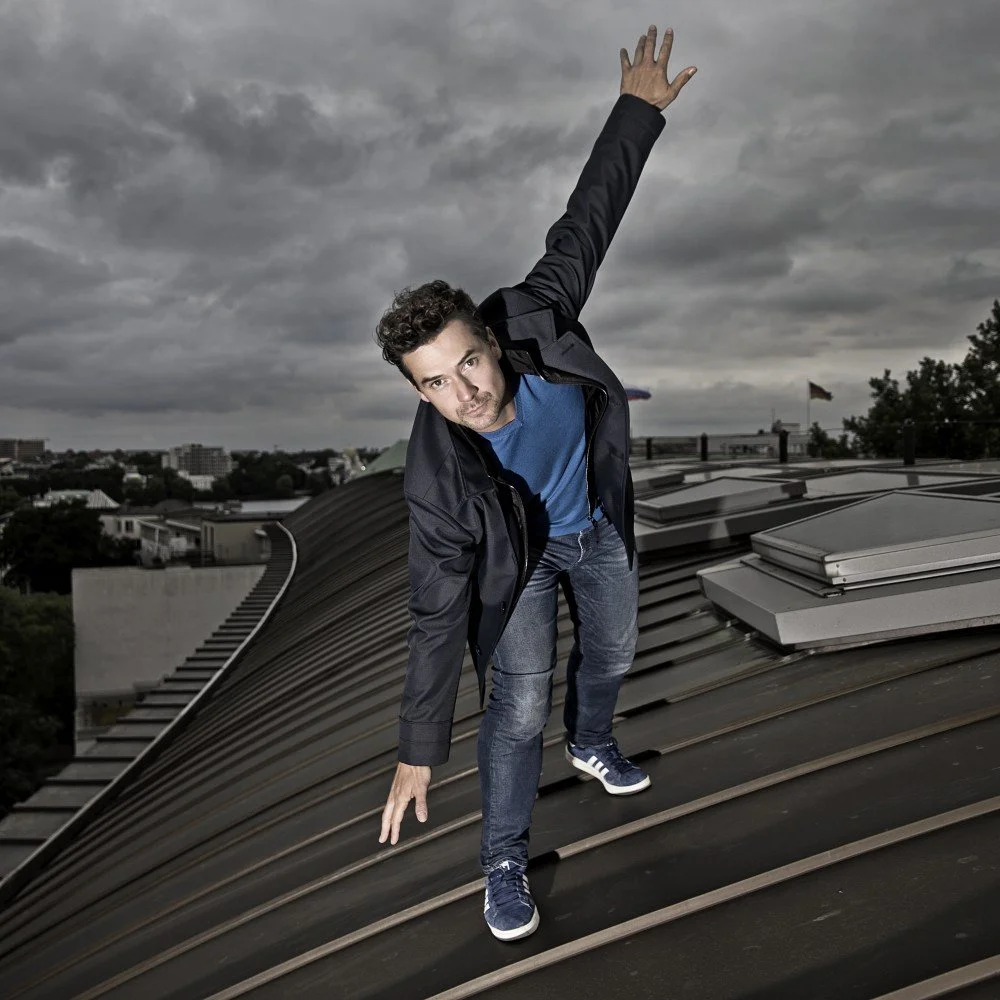Pianist-singer-songwriter Michael Kaeshammer brings upbeat style to the stage
The genre-busting performer will share tracks off of his forthcoming album, Turn It Up
Michael Kaeshammer. Photo by Tina Acke
Massey Theatre presents Michael Kaeshammer on December 3 at 7:30 pm; Kay Meek Mainstage World Music Series presents Michael Kaeshammer on December 4 at 7:30 pm to 9 pm at Kay Meek Arts Centre - Grosvenor Theatre
THE SOUNDTRACK TO Michael Kaeshammer’s childhood in Offenburg, Germany, is eclectic: The acclaimed pianist-singer-songwriter grew up listening to his parents play everything from Big Joe Turner, Count Basie, Louis Prima, and Louis Armstrong to Little Richard, Jerry Lee Lewis, The Beatles, The Rolling Stones, and Led Zeppelin. There was ragtime, New Orleans funk, and pop. Upon moving to Canada in his teens, he turned up the dial on the likes of AC/DC, Robert Palmer, and Phil Collins. Along the way there was the music of Beethoven, Haydn, and Schumann, among other composers. It’s no wonder that the artist now based in Sidney, B.C. is loath to label his music as any particular genre.
“When I grew up, I was influenced by so many different styles from my parents’ record collection,” Kaeshammer tells Stir on the line from London, Ontario, where he’s spending a night as part of a cross-country tour that brings him to the West Coast this weekend. “There was everything from ’50s soul music to hard rock to classical to jazz to blues to boogie woogie—all that stuff—gospel, ragtime, pop… It all comes out in my music.
“There are all these influences, but for me, I really just play the piano and sing the way I want to hear it,” he summarizes. “When people ask me who’s my favourite piano player, I say ‘I am.’ I don’t say it with any ego; I mean that I play how I want to play it. Whatever emotion the music conveys, there’s a place for everything. I relate to rhythm a lot; I think there’s a lot of happiness in rhythm. I like upbeat.”
Kaeshammer has found his genre-busting place through decades of performing around the globe; he started out on festival stages across Europe in his early teens. Today, he has six Juno nominations and numerous Western Canadian Music Awards to his name. He has opened for Ray Charles and Anne Murray, had co-writing sessions with Randy Bachman and Colin James, and performed at official international Olympic Games events.
When Kaeshammer performs in New Westminster and West Vancouver, he’ll be joined by bandmates Steve Hilliam, a Vancouver-based saxophonist; William Sperandei on trumpet and Kelsley Grant on trombone, both from Toronto; Hamburg-based bassist Konrad Herbolzheimer; and New Orleans drummer Geoff Clapp. He’ll relay his energetic style via tracks off of his forthcoming release, Turn It Up, and from his back catalogue. Kaeshammer has released so many albums throughout the course of his career that he has lost track; say at least 14. (The first one, Blue Keys, was made in Canada in 1996.) The recording artist drew from pandemic-era reflection for the songwriting on Turn It Up, a disc that zeroes in on the joy that music brings to people’s lives.
“It’s great to be back on stage connecting with an audience again; that’s something I definitely enjoy the most about what I do,” he says. “I try to take a positive outlook to life and to rocks in the road, and I try to convey that positive approach with my show and to the audience, too. There’s so much going on in the world; I love to see that at the end of the show, I’ve been able to give them some happiness for those two hours.”
When Kaeshammer is back home practising, looking out from his living-room window to Salt Spring Island, he plays on the same black Kawai baby grand piano that he had as a kid in Germany. So cherished was the instrument to the family that they packed it up in a big container and brought it with them from Europe.
“It’s not the best piano,” Kaeshammer says. “But it’s the memory I have of growing up and playing on it; it’s so familiar to me. I think if I had a nine-foot Steinway at home, I would be too spoiled when I get to a concert. If I can play on that, I can play on anything. I love it. When I sit down, it’s one of the most familiar things I have. It’s like a safe zone.













